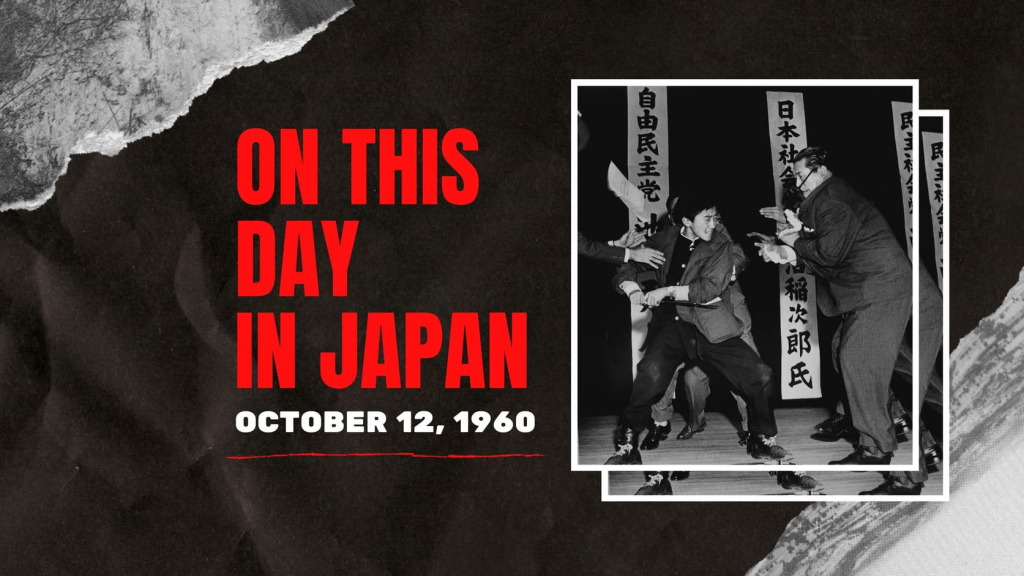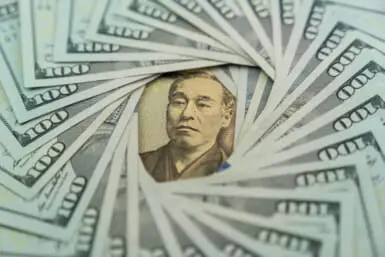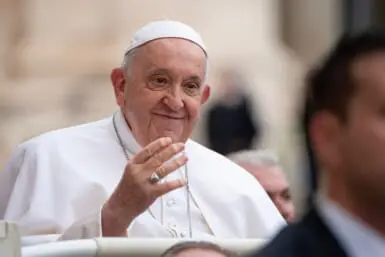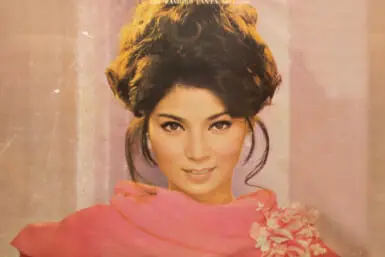“On This Day in Japan” is a new Tokyo Weekender series that retell significant historical events, accidents and incidents that have had a major impact on Japanese society, politics and culture.
On this day 60 years ago, televised political debate at Hibiya Hall in Tokyo came to a dramatic end when 17-year-old ultranationalist Otoya Yamaguchi stormed the stage to stab Japan Socialist Party (JSP) leader Inejiro Asanuma with a foot-long yoroi-doshi — a traditional Japanese sword used by samurai during the Feudal era. The politician was pronounced dead before arriving at the hospital while Yamaguchi, who was still wearing his school uniform, smiled as the police led him away.
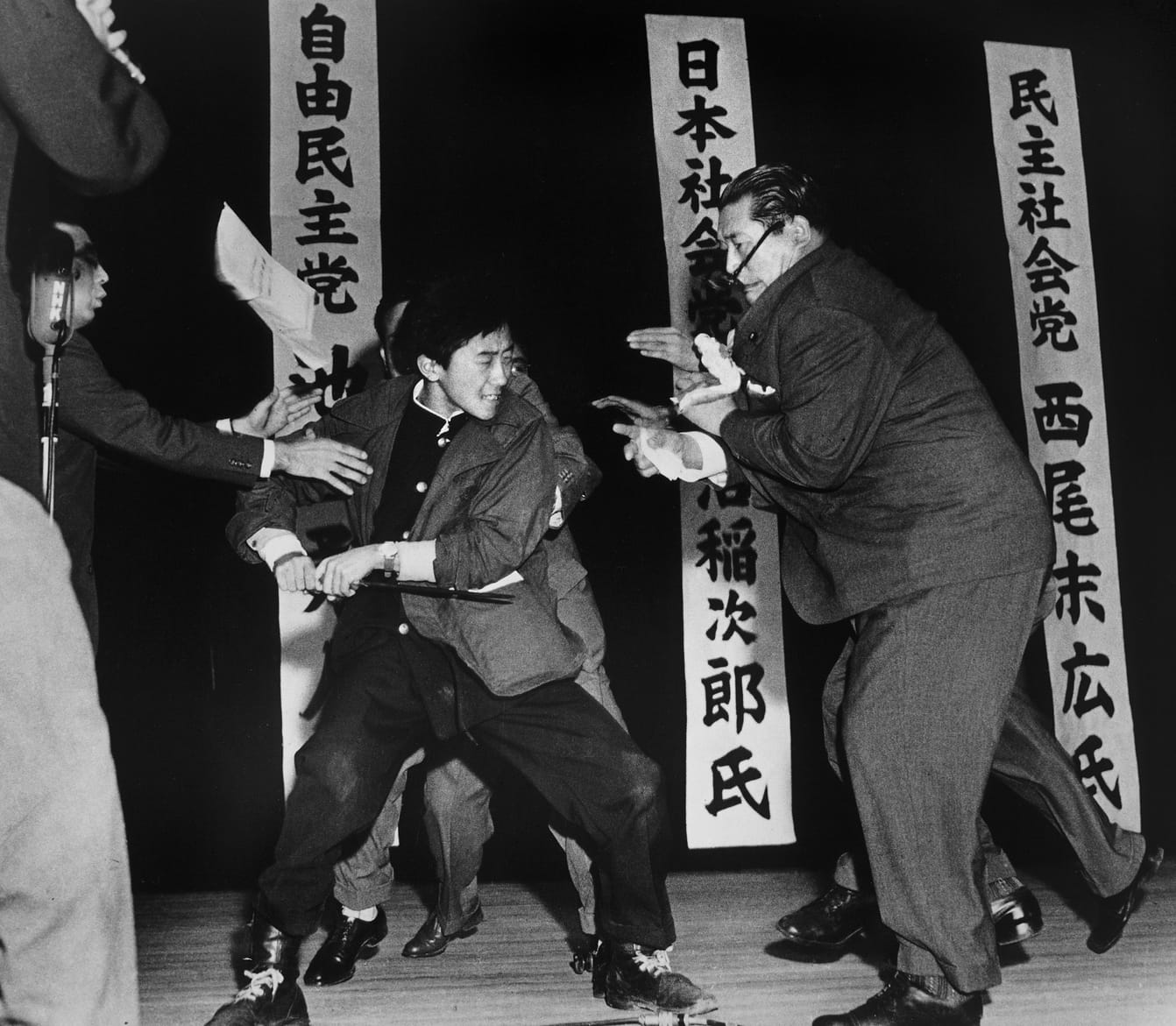
Pulitzer Prize-winning photograph by Yasushi Nagao, Mainichi Shimbun. The photo was taken directly after Yamaguchi stabbed Asanuma and is here seen attempting a second stab, although he was restrained before that could happen. Photo source: Wikipedia
Incident Background
The shocking incident occurred at a tense time in this country as divisions between the left and right were escalating. A year earlier, Asanuma had given a speech in Beijing, during which he described the United States as “the shared enemy of China and Japan.” A towering figure (nicknamed the “human locomotive”), he returned home in a suit styled after Chairman Mao, a move that was even slammed by fellow Socialist leaders (at the time, China was not recognized as legitimate by either Japan or America).
His fiercest critics came from Uyoku Dantai, Japanese ultranationalist right-wing groups which varied in their political beliefs but shared three main philosophies: Hostility towards communism and Marxism, advocation of Kokutai-Goji (the fundamental character of the nation) and opposition to the Japan Teachers Union (who were against displays of Japanese symbols and the performance of the national anthem).
What Happened
On October 12, 1960, around 100 Uyoku Dantai members were in the audience at Hibiya Hall to heckle Asanuma. That wasn’t enough for Yamaguchi, however, who felt he could make a much bigger political statement by ending the socialist’s life. The 1,000 people in attendance, including prime minister Hayato Ikeda, could only look on in disbelief.
Three weeks after the assassination, Yamaguchi used bed sheets to create a noose that he tied around a light fixture to hang himself in his juvenile detention cell. Before his suicide, the teenager got hold of some toothpaste to write on the wall: “Seven lives for my country. Long live his Imperial Majesty, the Emperor.”
It was in reference to the final words of one of Japan’s greatest ever military strategists Kusunoki Masashige, as he lay dying on the battleground. Known for his devotion and loyalty to the Emperor, Masahige was a legendary figure in this country. While Yamaguchi would not be remembered so fondly, he was seen as a martyr by Uyoku Dantai and the group’s main representative in the Diet, the Great Japan Patriotic Party.
The Impact
The Japan Socialist Party, meanwhile, attempted to use the situation to garner sympathy votes at the General Election that took place the following month. It didn’t work. The Liberal Democratic Party (LDP) won 300 of the 467 seats in what was a landslide victory. The 144 seats won by the JSP was 23 fewer than the previous election.
Though the incident didn’t have a significant political impact, it did live long in the memory for those who witnessed it, particularly journalist Yasushi Nagao who received the 1960 World Press Photo of the Year award and the 1961 Pulitzer Prize for his photograph of the stabbing. He was working for the Mainichi Shimbun at the time.

